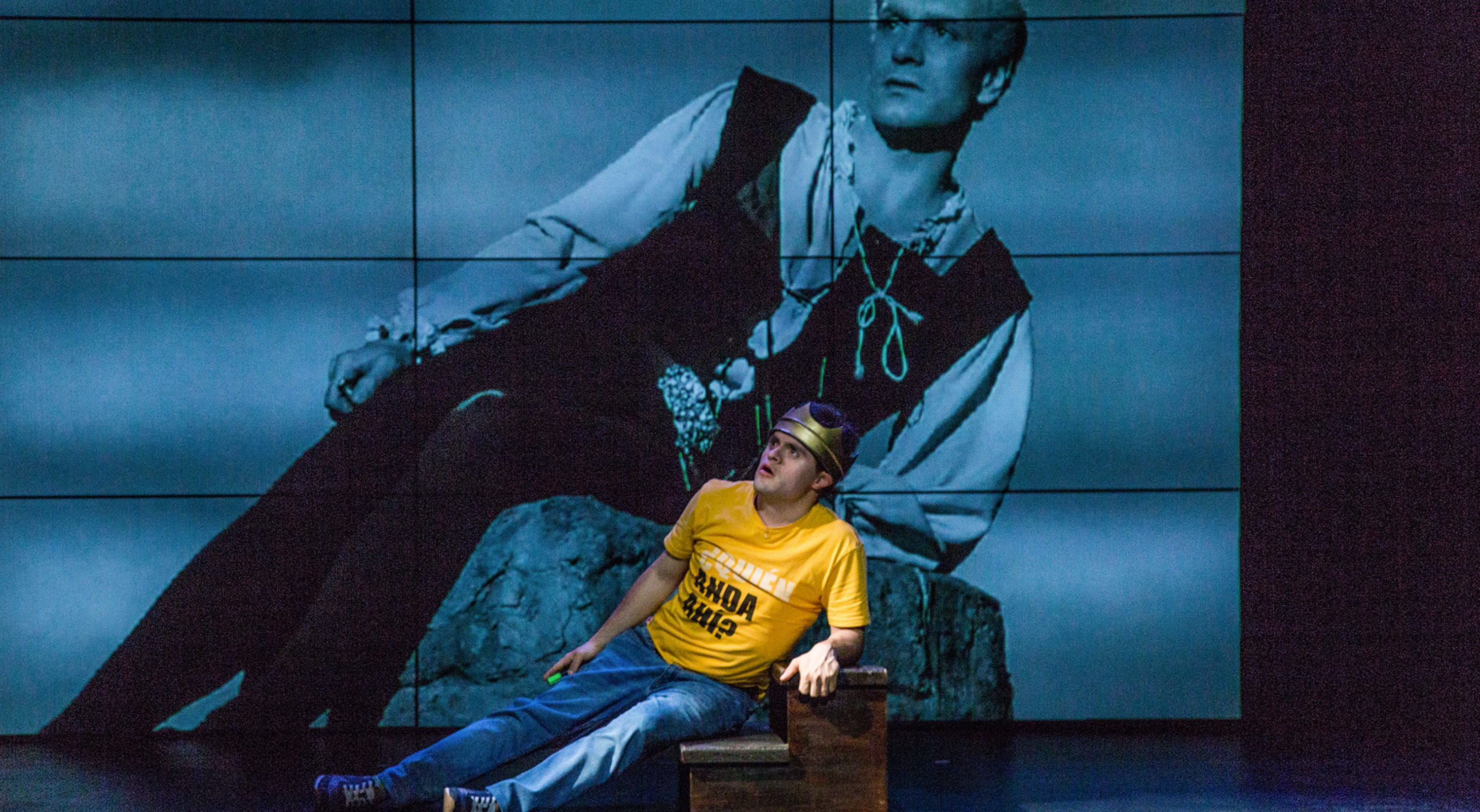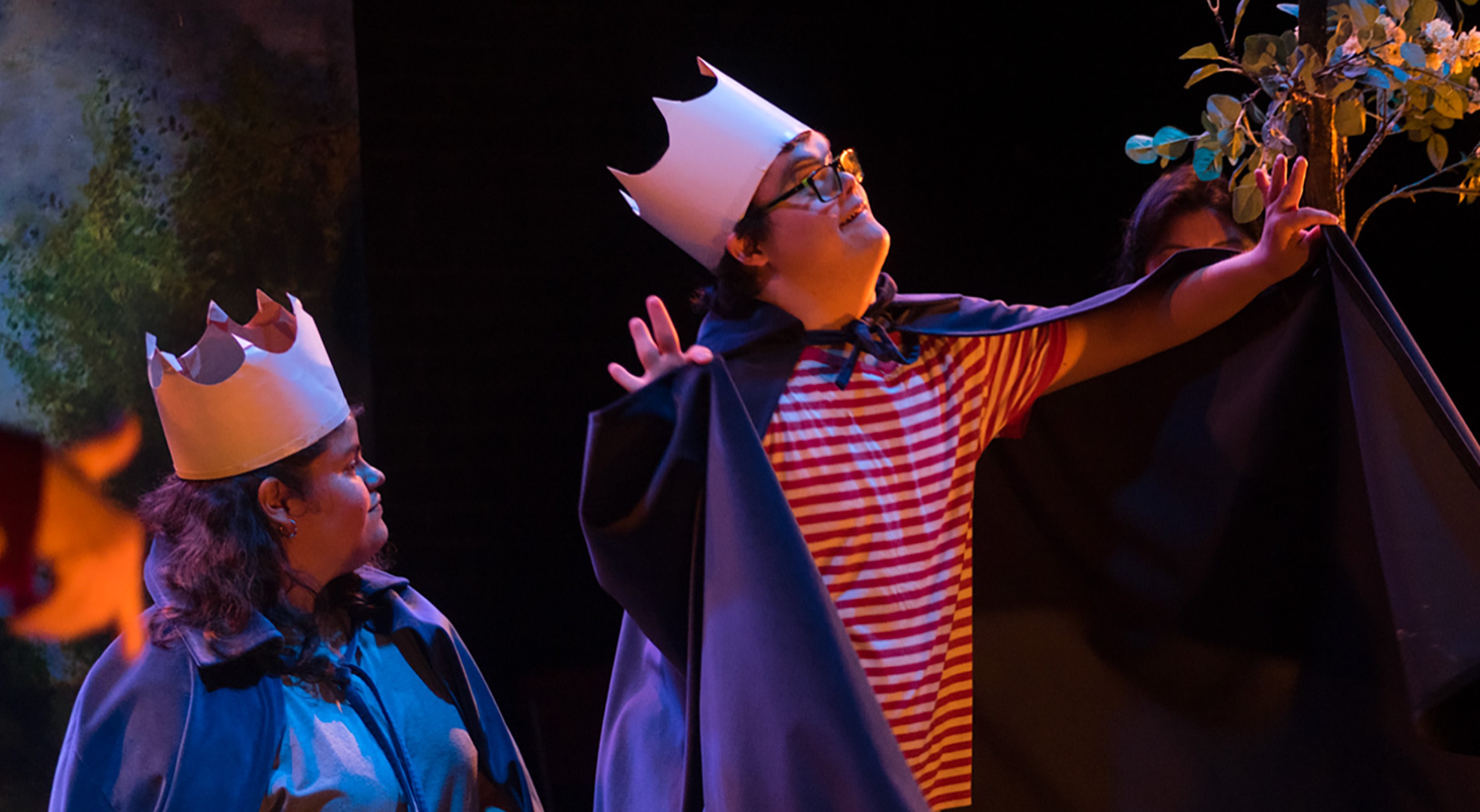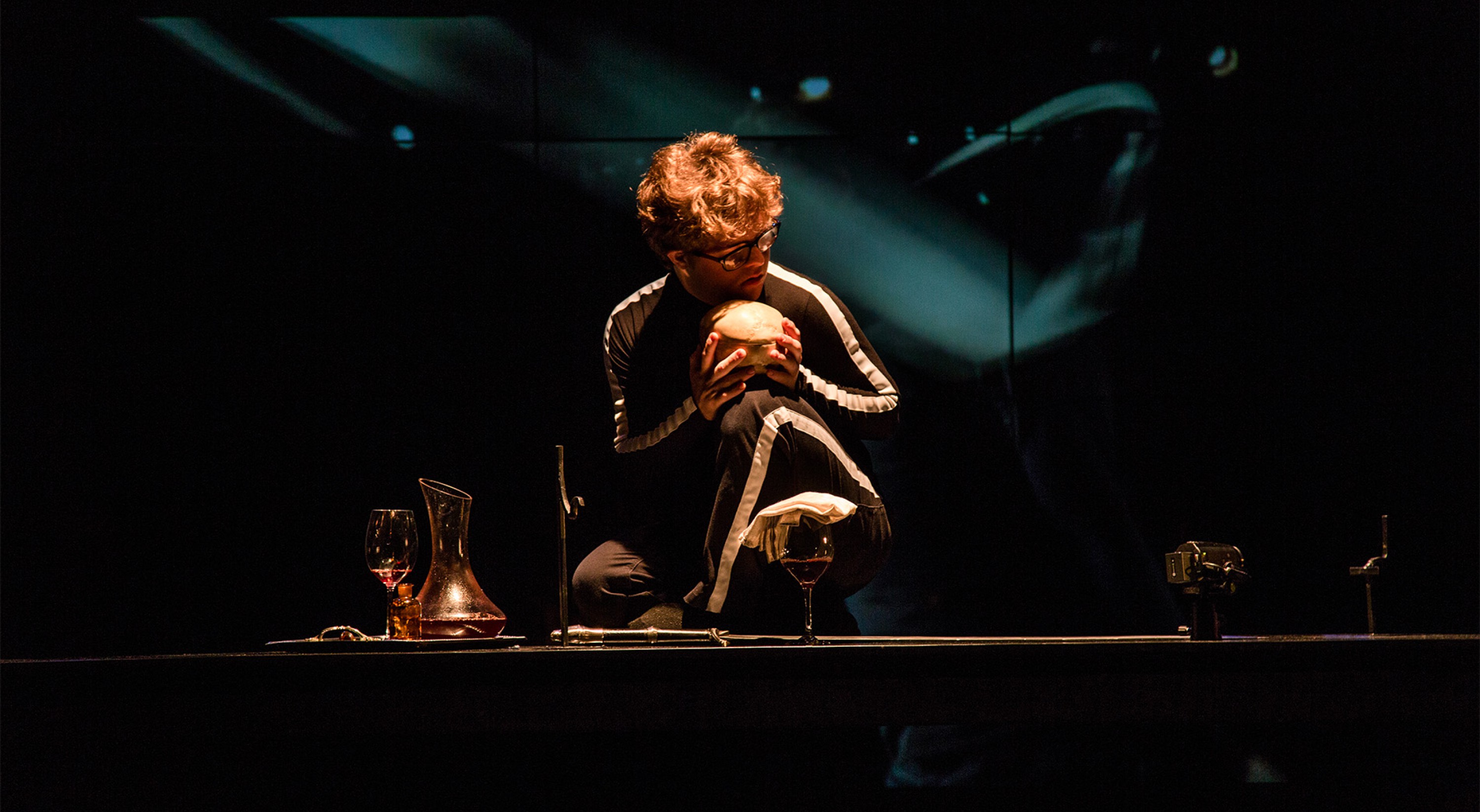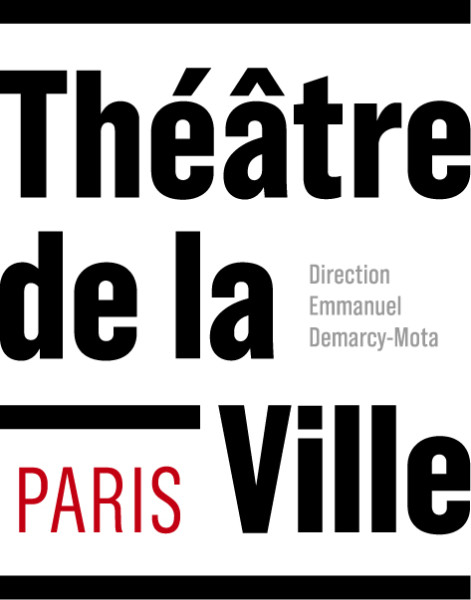Teatro La Plaza
Hamlet
octoberoct 4 – 7
octoberoct 10 – 11
octoberoct 15
Text and direction, Chela De Ferrari
Assistant directors and dramaturgy, Claudia Tangoa, Jonathan Oliveros, Luis Alberto León
Performers, Octavio Bernaza, Jaime Cruz, Lucas Demarchi, Manuel García, Diana Gutierrez, Cristina León Barandiarán, Ximena Rodríguez, Álvaro Toledo
Choreography, Mirella Carbone
Video design, Lucho Soldevilla
Lighting design, Jesús Reyes
Vocal work, Alessandra Rodríguez
Translation and title editing in French, Maëlle Mas
Delegated production and European distribution, Carlota Guivernau
Production Teatro La Plaza
The Théâtre de la Ville-Paris and the Festival d'Automne à Paris co-produce this performance.
With the support of Onda office national de diffusion artistique
To question, provoke, surprise, denounce and dream: these are the founding principles of Teatro La Plaza, which came into existence twenty years ago in Miraflores, an area of Lima, in Peru. Its vision of theatre is that of a public playing space, which "brings together in a democratic way those who inhabit it", in order to work towards the construction of a "country inhabited by empathic citizens".
Bringing to the stage eight performers suffering from Down's Syndrome in order to perform Hamlet, Chela De Ferrari worked hand in hand with them to produce a decidedly free version of the piece by Shakespeare. Free, in that the original text dialogues with other, more personal, texts, in which the performers tell their own story, and represent themselves. Free also, in that is rid of all prejudice and discrimination, as well as social and theatrical norms. The phrase "To be or not to be" suddenly takes on new meaning. How can you exist in a world if this world renders you invisible or excludes you? Chela De Ferrari does not set out merely to revisit a classic, she makes it enter into dialogue with the world around us, which we sometimes prefer to ignore ignorer or occult, and which she enables to be seen and heard on the stage. In this way, she gives meaning to her art of theatre making: "Our last resort".
In the same place



